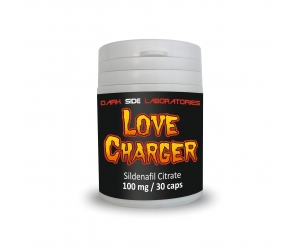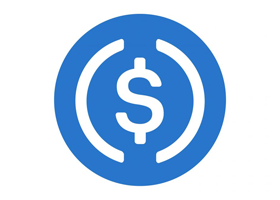Generic Viagra 100 mg buy over the counter online in USA and Europe
Using the popular medicine Viagra as an example, the article explains the differences between generics (analogues) and branded medicines (originals).
INEXPENSIVE ANALOGUES OF VIAGRA (GENERICS). DIFFERENCES FROM THE ORIGINAL.
Generics (analogues) are medicines that contain the same active chemical substance, identical release form, efficacy, medical prescriptions and safety as the original Viagra, but do not have patent protection.
Generics (analogues) are therapeutically, pharmaceutically and biologically equivalent to the original Viagra, but, as a rule, have a lower price.
"Patent protection" = the key difference between generics (analogues) and the original medicine. Let's take a closer look at the concept of "patent protection".
PATENT - LEGALIZED MONOPOLY
A pharmaceutical company, when releasing a new product or starting to import it into a new country, seeks to obtain a patent. A patent entitles a single patent holder company to manufacture and distribute a medicine in a given country. By obtaining a patent, the company acquires a legalized monopoly protected by the state, which allows you to set any prices, with an artificially created, complete lack of competition. Pharmaceutical companies, chasing profits, use this opportunity by setting the highest possible high prices, at which, according to preliminary calculations, the medicine will be in demand in the market of this particular country. This is called "wholesale markup". A number of countries exercise state control over the "wholesale markup" (Israel, Canada). The United States and Russia do not regulate this pricing factor.
Given the great excitement around Viagra, the Pfizer company, which developed and patented the medicine, until a certain time used the opportunity that presented itself, setting unjustifiably high prices for its product.
Fortunately for users, the duration of a patent is limited to 20 years. (In the USA -17 years). The patent can be extended. (in Russia - for 5 years). A number of countries exclude this possibility. After the expiration of the patent, any pharmaceutical company has the right to start producing generics (analogues). In the case of Viagra, after the expiration of the Pfizer patent, Indian, Chinese, Israeli and other pharmaceutical companies began manufacturing the product.
After the release of the first version of the Viagra analogue, the price of the original fell sharply, an even more noticeable price drop occurred after the release of the second version of the generic (analogue).
In fairness, it should be noted that the creation and launch of new medicines on the market is a long and expensive process that takes 6-10 years. The cost of the project varies from 1 billion dollars and more. By the time a new medicine appears on the pharmacy shelves, the developer company spends huge amounts of money on research and clinical trials. There is a strictly limited period of time (20 years) from the date of obtaining a patent that protects the developer company to the appearance of the first competitors that adversely affect profits and sales volumes. In an effort to quickly recoup investments and maximize profits, pharmaceutical companies set the highest possible "wholesale markup", using the temporary position of the monopolist to the maximum.
PRODUCTION OF VIAGRA ANALOGUES (GENERICS):
Manufacturers of Viagra analogues (generics) did not spend money on the development and clinical trials of the medicine. Resources are spent only on production. Bioequivalence and compliance with the standards of the original medicine is the basis for the approval of generic medicines (analogues). It is on this that all the efforts of the manufacturer are concentrated.
Manufacturers of Viagra analogues (generics) are deprived of monopoly privileges. When pricing, one has to take into account the prices of competitors, the needs of the market, and, as a result, to set competitive market prices. The combination of the above factors leads to a significant price reduction compared to the original. In the case of generics, the market, not the monopoly, determines the price.
REGISTRATION OF VIAGRA ANALOGUES (GENERICS)
Let's take the example of the USA. At the expiration of the patent, any pharmaceutical company that decides to produce an analogue of Viagra submits an application (ANDA) to the FDA. (ANDA stands for Simplified New Drug Application). The FDA (Food and Drug Administration), after making sure that the analogue is bioequivalent to the original, is safely produced, has the necessary labels, approves the application and adds it to the list of approved drugs (FDA Orange Book). After that, the analogue of Viagra enters the market under its own brand.
ANALOGUES OF VIAGRA OR ORIGINALS?
This is a matter of marketing and advertising. Pharmaceutical companies spend a lot of money on advertising. Viagra's advertising budget for 2011 is $400 million. It is not surprising that, having heard the phrase "erectile dysfunction", 95% of people have a well-established association – Viagra. People tend to believe advertisements and pharmacists. It is beneficial for the latter to convince patients of the superiority of originals over generics for one simple reason, selling originals can make more money. Agree, it's better to get 30% profit from $500 than 30% from $200 by selling generics. Often, it is more profitable for doctors to prescribe originals, because receiving "bonuses" from distributors serves as a good motivator, at the same time being a pleasant increase in salary.
In addition, if a certain medicine helps a patient, it is unlikely that he will want to change it. Generics may contain excipients (inactive components) that do not affect the effect of the medicine, but change the color and / or taste. The shape of generic tablets may vary. For these reasons, the average person will decide that this is a completely different medicine. Subjective feelings can play a role in the choice.
RECOMMENDATIONS FOR SELECTING VIAGRA ANALOGUES:
- search for a medicine by the active chemical.
- compare prices of found medicines from different manufacturers, taking into account the contained dosages
- do not be afraid to order medicines abroad, having previously studied the legislation of the importing country. The price for the same product of the same manufacturer in different countries may differ significantly.





 Russia, 456440,
Russia, 456440,







